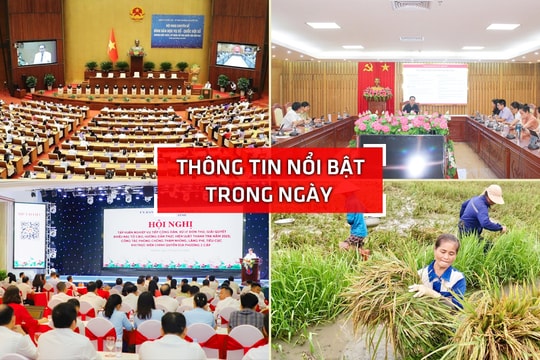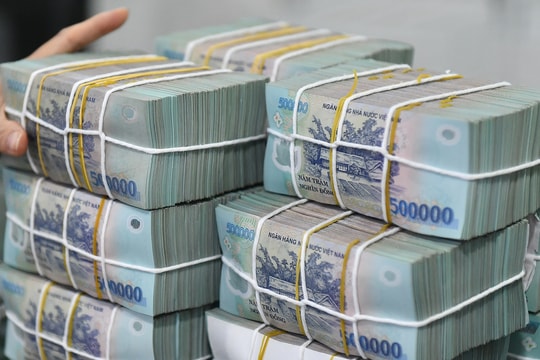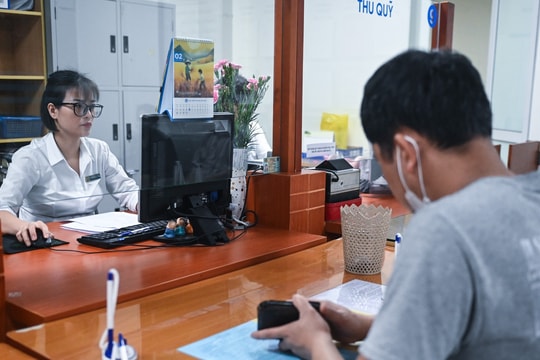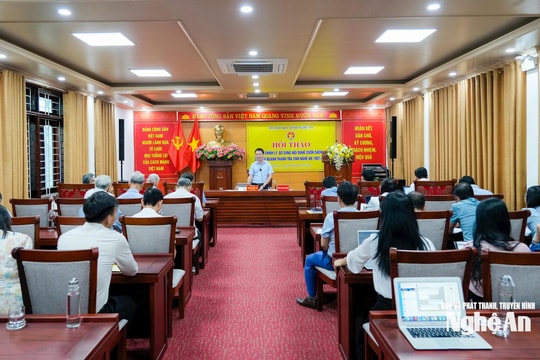Petty corruption - great harm
(Baonghean.vn) - Called "petty" but these are illegal acts, all are social evils, need to be fought to eliminate. Called "petty" but the consequences are very serious.
When we studied, in the National Academy of Politics textbook it was defined: "Corruptionis the act of taking advantage of one's position and power, illegally enjoying material benefits, causing damage to the property of the State, collectives, individuals, violating the proper operations of agencies, organizations, etc. Today, people also have "big corruption", "petty corruption"! Not to mention the new concepts of "power corruption", "sexual bribery",... which were not in the curriculum in those years?
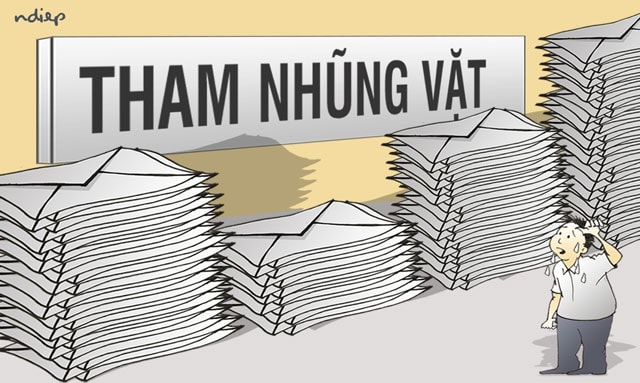 |
| Illustration |
To distinguish it from grand corruption, it can be said that petty corruption is the act of “abusing the power entrusted to low- and middle-level officials and civil servants in their daily interactions with the people, often when the people need access to goods or basic services such as hospitals, schools, police and other agencies”,...
Major, "huge" corruption is often the case at high levels, large enterprises, between officials,... while "petty corruption" is often the case of low-level and intermediate-level officials. "Petty" corruption often occurs regularly, directly with the people, manifested in the form of "violations", "policy violations", small bribes in money and in kind that people and businesses must directly pay to officials and civil servants to speed up the provision of public services,... This distinction is also only relative, qualitative, not quantitative. There is information that some people consider "severely" "petty corruption" - workers think about it and are "shocked"?
Called “petty” but these are illegal acts, all are social evils, need to be fought to eliminate. Called “petty” but the consequences are very serious.
Petty corruption is associated with the provision of common public services, such as education, health care, administrative procedures, etc., the implementation of socio-economic policies, and the lives of people, especially the poor. It can be when running to get children into selective classes, when issuing "red books" faster, when being classified as poor households, when violating traffic safety, etc., whoever has extra "grease" will get things done - a myriad of forms, even if it is not enough all day. The poor are victims of petty corruption. Already poor, having to spend money to access these services will directly and significantly impact the quality of life of the people, making the poor even poorer.
Petty corruption has a negative, long-term impact on the quality of state governance and the legal environment of a country, destroying the discipline and rules of localities and units. Because they want to commit petty corruption, they create "sub-licenses", sub-law regulations and cumbersome procedures to increase the opportunity to extort money from people and businesses. They get used to it - and from here, the evil of "brokers" (there are all kinds of brokers) parasitizes every type of service, every agency and unit, both tormenting people and corrupting the civil service.
When petty corruption is rampant, bribery is also used for tax evasion, thereby reducing budget revenue.
The biggest, heaviest, most dangerous, and most bitter consequence of petty corruption is that people lose faith in the Party, the State, and the regime. People, especially the poor, when accessing public services, have to think of "grease money", "bribes", "passage fees", "tips, gratuities", etc. Petty corrupt officials become "robbers" who parasitize honest people. The Party and State's policies and guidelines are distorted by them in many ways.
In recent times, thanks to the great efforts of the Party, the State and the whole society, the fight against corruption has achieved encouraging results. However, petty corruption is still very common, complicated, sophisticated, difficult to detect, and continues to cause much frustration among the people. It must also be said that some people, in order to get things done, unintentionally create opportunities and support petty corruption.
Petty corruption is a “disease” that is very difficult to cure quickly and thoroughly. Preventing, combating and fighting petty corruption is still extremely difficult. To have sustainable results, it is necessary to combine many regular prevention and combat solutions with strong political will and determination.
It is necessary to thoroughly understand the harmful effects of petty corruption among civil servants and the people. It is necessary to organize the signing of commitments and have specific and strict sanctions for civil servants working in areas prone to this evil. It is necessary to implement the direction of minimizing, publicizing, simplifying and making transparent administrative procedures. Early application of information technology in the provision of public services, minimizing and limiting direct contact between civil servants and people and businesses when handling administrative procedures. Applying the provision of services via mobile phones. Strengthening measures to monitor, detect and denounce violations. It is also necessary to learn from advanced countries that have succeeded in quickly connecting emergency phone numbers; applying social networks and resolutely eliminating state officials when they do not seriously implement the committed regulations.

